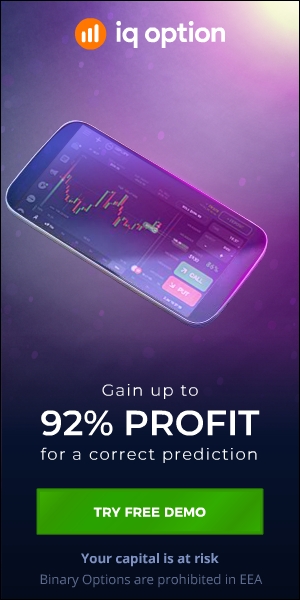“`html
Introduction to Cryptocurrency Education for Beginners
Cryptocurrencies have taken the financial world by storm, offering a new way to think about money, investments, and the future of transactions. For beginners, the world of cryptocurrencies can seem daunting, filled with complex jargon and rapidly changing technologies. However, there are numerous resources available to help newcomers understand and navigate this exciting field. This article aims to provide a comprehensive guide on where beginners can learn about cryptocurrencies, covering various platforms, resources, and strategies to get started.
Understanding the Basics of Cryptocurrencies
Before diving into where to learn about cryptocurrencies, it’s essential to understand what they are. Cryptocurrencies are digital or virtual currencies that use cryptography for security. Unlike traditional currencies issued by governments, cryptocurrencies operate on decentralized networks based on blockchain technology.
Key Concepts to Grasp
- Blockchain: A decentralized ledger that records all transactions across a network of computers.
- Bitcoin: The first and most well-known cryptocurrency, created by an anonymous person or group known as Satoshi Nakamoto.
- Altcoins: Any cryptocurrency other than Bitcoin, such as Ethereum, Ripple, and Litecoin.
- Wallets: Digital tools that allow users to store and manage their cryptocurrencies.
- Exchanges: Platforms where users can buy, sell, and trade cryptocurrencies.
Online Courses and Tutorials
One of the most effective ways for beginners to learn about cryptocurrencies is through online courses and tutorials. These resources often provide structured learning paths, making it easier to grasp complex concepts.
Popular Online Learning Platforms
- Coursera: Offers courses from top universities and institutions, including cryptocurrency and blockchain technology.
- Udemy: Features a wide range of courses on cryptocurrencies, from beginner to advanced levels.
- edX: Provides courses from renowned universities like MIT and Harvard on blockchain and cryptocurrency.
- Khan Academy: Offers free educational content, including a comprehensive introduction to Bitcoin and cryptocurrencies.
Recommended Courses
| Platform | Course Title | Level |
|---|---|---|
| Coursera | Bitcoin and Cryptocurrency Technologies | Beginner |
| Udemy | Cryptocurrency Investment Course 2023: Fund Your Retirement! | Intermediate |
| edX | Blockchain Fundamentals | Beginner |
| Khan Academy | Bitcoin and Cryptocurrencies | Beginner |
Books and E-books
Books and e-books are excellent resources for those who prefer a more in-depth and comprehensive approach to learning about cryptocurrencies. Many books cover the history, technology, and future of cryptocurrencies, providing valuable insights for beginners.
Top Books for Beginners
- Mastering Bitcoin by Andreas M. Antonopoulos: A comprehensive guide to Bitcoin and blockchain technology.
- Cryptoassets: The Innovative Investor’s Guide to Bitcoin and Beyond by Chris Burniske and Jack Tatar: A detailed look at investing in cryptocurrencies.
- The Bitcoin Standard: The Decentralized Alternative to Central Banking by Saifedean Ammous: Explores the economic and historical context of Bitcoin.
- Blockchain Basics: A Non-Technical Introduction in 25 Steps by Daniel Drescher: A beginner-friendly introduction to blockchain technology.
Websites and Blogs
Websites and blogs dedicated to cryptocurrencies are valuable resources for staying updated on the latest news, trends, and developments in the field. Many of these platforms offer educational content, tutorials, and expert analysis.
Notable Cryptocurrency Websites
- CoinDesk: A leading news website that covers all aspects of cryptocurrencies and blockchain technology.
- CoinTelegraph: Provides news, analysis, and educational content on cryptocurrencies.
- CryptoSlate: Offers news, data, and insights on the cryptocurrency market.
- Bitcoin Magazine: One of the oldest and most respected publications in the cryptocurrency space.
Popular Cryptocurrency Blogs
- Vitalik Buterin’s Blog: Insights from the co-founder of Ethereum on blockchain technology and cryptocurrencies.
- Andreas M. Antonopoulos’ Blog: Educational content and analysis from a leading expert in the field.
- Crypto Briefing: In-depth analysis and research on various cryptocurrencies and blockchain projects.
YouTube Channels and Podcasts
YouTube channels and podcasts are excellent resources for visual and auditory learners. Many content creators in the cryptocurrency space offer tutorials, interviews, and discussions that can help beginners understand complex topics.
Top YouTube Channels
- DataDash: A popular channel covering cryptocurrency news, analysis, and tutorials.
- Crypto Zombie: Offers daily updates and insights on the cryptocurrency market.
- Andreas M. Antonopoulos: Educational videos from one of the leading experts in the field.
- Boxmining: Provides news, analysis, and tutorials on cryptocurrencies and blockchain technology.
Recommended Podcasts
- Unchained: Hosted by Laura Shin, this podcast features interviews with industry leaders and experts.
- The Pomp Podcast: Hosted by Anthony Pompliano, covering a wide range of topics related to cryptocurrencies and blockchain.
- Crypto Top Trading Signals: Offers insights and analysis on cryptocurrency trading and investment.
- Bitcoin Audible: Narrates articles and essays on Bitcoin and cryptocurrencies.
Forums and Online Communities
Engaging with forums and online communities can be incredibly beneficial for beginners. These platforms allow users to ask questions, share knowledge, and learn from the experiences of others.
Popular Cryptocurrency Forums
- BitcoinTalk: One of the oldest and most active forums dedicated to Bitcoin and cryptocurrencies.
- Reddit: Subreddits like r/Bitcoin, r/CryptoCurrency, and r/Ethereum are great places to discuss and learn about cryptocurrencies.
- Stack Exchange: A Q&A platform where users can ask technical questions about Bitcoin and blockchain technology.
Online Communities
- Telegram Groups: Many cryptocurrency projects and communities have active Telegram groups where users can discuss and share information.
- Discord Servers: Similar to Telegram, Discord servers offer a platform for real-time discussions and community engagement.
- Facebook Groups: There are numerous Facebook groups dedicated to cryptocurrencies, where users can share news, ask questions, and learn from each other.
Workshops and Conferences
Attending workshops and conferences can provide valuable hands-on experience and networking opportunities. These events often feature expert speakers, panel discussions, and interactive sessions.
Notable Cryptocurrency Conferences
- Consensus: One of the largest and most influential cryptocurrency conferences, held annually by CoinDesk.
- Blockchain Expo: A series of global events focusing on blockchain technology and its applications.
- Crypto Finance Conference: An exclusive event for investors and industry leaders in the cryptocurrency space.
- Devcon: The annual developer conference for the Ethereum community.
Local Workshops and Meetups
Many cities have local workshops and meetups where enthusiasts can learn about cryptocurrencies and blockchain technology. Websites like Meetup.com can help you find events in your area.
University Programs and Research Centres
Several universities and research centres offer programs and courses on cryptocurrencies and blockchain technology. These institutions provide a more formal and academic approach to learning.
Leading Universities Offering Cryptocurrency Courses
- Massachusetts Institute of Technology (MIT): Offers courses on blockchain technology and cryptocurrencies through its Digital Currency Initiative.
- Stanford University: Provides courses and research opportunities in blockchain and cryptocurrency through its Center for Blockchain Research.
- University of Oxford: Offers a Blockchain Strategy Programme through its Saïd Business School.
- University of Nicosia: One of the first universities to offer a Master’s degree in Digital Currency.
Research Centres
- Blockchain Research Institute: Conducts research on blockchain technology and its applications across various industries.
- Cambridge Centre for Alternative Finance: Part of the University of Cambridge, this centre conducts research on alternative finance, including cryptocurrencies.
- RMIT Blockchain Innovation Hub: A research centre at RMIT University focused on blockchain technology and its economic implications.
Practical Experience and Hands-On Learning
While theoretical knowledge is essential, practical experience is equally important for understanding cryptocurrencies. Engaging in hands-on activities can help solidify your understanding and build confidence.
Setting Up a Cryptocurrency Wallet
One of the first steps in gaining practical experience is setting up a cryptocurrency wallet. Wallets come in various forms, including hardware wallets, software wallets, and mobile wallets. Each type has its own advantages and security features.
Buying and Trading Cryptocurrencies
Once you have a wallet, you can start buying and trading cryptocurrencies. Many exchanges offer beginner-friendly interfaces and tutorials to help you get started. Some popular exchanges include Coinbase, Binance, and Kraken.
Participating in Testnets and Faucets
Testnets and faucets allow you to experiment with cryptocurrencies without risking real money. Testnets are alternative blockchains used for testing, while faucets provide small amounts of cryptocurrency for free to help you practice transactions.
Conclusion
Learning about cryptocurrencies can be a rewarding and enriching experience. With the right resources and a structured approach, beginners can quickly gain a solid understanding of this fascinating field. From online courses and books to forums and practical experience, there are numerous ways to start your journey into the world of cryptocurrencies. By leveraging these resources, you can build a strong foundation and stay informed about the latest developments in this rapidly evolving industry.
Q&A Section
- Q: What is the best way for a beginner to start learning about cryptocurrencies?
A: The best way is to start with online courses and tutorials, as they provide structured learning paths. Platforms like Coursera, Udemy, and Khan Academy offer excellent courses for beginners. - Q: Are there any free resources available for learning about cryptocurrencies?
A: Yes, there are many free resources available, including Khan Academy, YouTube channels, blogs, and forums like Reddit and BitcoinTalk. - Q: What are some essential books for understanding cryptocurrencies?
A: Some essential books include “Mastering Bitcoin” by Andreas M. Antonopoulos, “Cryptoassets” by Chris Burniske and Jack Tatar, and “The Bitcoin Standard” by Saifedean Ammous. - Q: How can I gain practical experience with cryptocurrencies?
A: You can gain practical experience by setting up a cryptocurrency wallet, buying and trading cryptocurrencies, and participating in testnets and faucets. - Q: Are there any university programs focused on cryptocurrencies?
A: Yes, several universities offer programs and courses on cryptocurrencies, including MIT, Stanford University, University of Oxford, and University of Nicosia. - Q: What are some reputable websites for staying updated on cryptocurrency news?
A: Reputable websites include CoinDesk, CoinTelegraph, CryptoSlate, and Bitcoin Magazine. - Q: Can I learn about cryptocurrencies through podcasts?
A: Yes, podcasts like “Unchained,” “The Pomp Podcast,” “Crypto Top Trading Signals,” and “Bitcoin Audible” are excellent resources for learning about cryptocurrencies. - Q: What are some popular forums for discussing cryptocurrencies?
A: Popular forums include BitcoinTalk, Reddit (subreddits like r/Bitcoin and r/CryptoCurrency), and Stack Exchange. - Q: Are there any local events or meetups for learning about cryptocurrencies?
A: Yes, many cities have local workshops and meetups. Websites like Meetup.com can help you find events in your area. - Q: What is the role of research centres in cryptocurrency education?
A: Research centres like the Blockchain Research Institute and Cambridge Centre for Alternative Finance conduct research on blockchain technology and cryptocurrencies, providing valuable insights and educational resources.
“`


